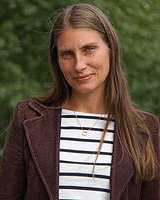Fuel cell researchers seek better solutions

Rakel Wreland Lindström performs research in renewable energy and fuel cells at KTH. Nearly a year ago she got to tell the world and US President Barack Obama about her research. She is the first in our graduate relay.

What is your next step in your research/innovation/theory/discovery?
"A crucial step is to develop fuel cells that are cost-effective. In recent years, a lot has happened in fuel cell research. With various modifications of nanomaterials, we have been able to increase cell activity significantly while simultaneously reducing the amount of platinum. Even fully platinum-free catalysts have been developed with promising activities. The question is how these new catalysts function in the length of a cell? Maybe they can work better if with another type of electrolyte. But when you change a component, this affects another. The fuel cell is a complex system in which the various components must be work together to get good performance. This is something we want to investigate in a new project which kicks off in the fall."
What are the obstacles/challenges, if any?
"The commercial fuel cells that exist today have good performance and are durable, but they still are relatively costly depending on the components with which they are built. It's not easy to find a better alternative to established and proven solutions. In order to design new materials, we need to get a better understanding of how they operate and interact within the cell. If we succeed, the new type of fuel cell could potentially be significantly less expensive and more environmentally sustainable through their life cycle than today's fuel cells. The fuel cell must also keep over a long time for it to be interesting for larger applications. Another challenge is to pack many cells in a simple, but safe and effective manner. Electrical current feeders made of steel are interesting as they can be easily molded and can be made very thin, but it is important not to inhibit the fuel cell efficiency."
What can they be used for?
"Fuel cells are a fundamental energy technology that can be used in many contexts, both for portable electronics, to power vehicles or for stationary auxiliary power or CHP."
Rakel Wreland Lindström is a lecturer and works at the Department of Applied Electrochemistry at the School of Chemical Science and Engineering.